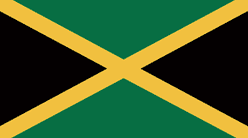
Study shows more industrial disputes recorded
The number of disputes reported to the Ministry of Labour and Social Security between 2007/08 and 2017/18 has increased by approximately 10 per cent, while disagreements relating to dismissals and suspensions moved from 66 to 149, an increase of 125 per cent over the same period.
Those are among the findings of a preliminary study on emerging trends in industrial disputes in Jamaica conducted by the Hugh Lawson Shearer Trade Union Education Institute and Mona School of Business and Management at The University of the West Indies.
According to the study, in 2007/08 nearly 30 per cent of all disputes were related to wages and conditions of employment, while in 2017/2018 the figure dropped to approximately 10 per cent.
“There were no reported disputes over bargaining and representational rights claim in 2016/17 and 2017/18, although in 2007/08, 23 per cent of disputes fell into this category. Disputes over dismissals and suspensions now represent approximately 85 per cent of total disputes reported,” the study revealed.
It also showed that in the period under review, the lowest number of disputes, 159 across all industries and causes, were recorded in 2009/10 and peaked in 2015/2016 at 445. It fell to 360 in 2016/17, and 202 in 2017/18.
Head of the Hugh Lawson Shearer Trade Union Education Education Institute Danny Roberts, and senior lecturer and head of the Behavioural Sciences and General Management Unit at the Mona School of Business and Management Dr Noel Cowell, who conducted the study, said that the available data from the ministry up to 2015/2016 showed a significant jump in the number of disputes reported by non-unionised workers since the 2010 amendments to the Labour Relations and Industrial Disputes Act.
The amendment allowed for non-unionised workers to have their disputes referred to the Industrial Disputes Tribunal where those disputes were classified as disputes of rights. More than 70 per cent of the total disputes reported to the ministry were from non-unionised workers.
The study showed that manufacturing, wholesale and retail, transport, storage, and communication and education accounted for nearly 50 per cent of all disputes over the last two years.
The researchers pointed out that the pattern of industrial disputes has shifted away from disputes of interests, relating to wage and conditions of employment, to disputes of rights, relating to dismissals and suspensions, which are more evident among non-unionised workers.
The study showed that, while the number of disputes have increased marginally over the period, the pattern of work stoppages has been on a downward trajectory, as no more than five were recorded in the 2015/16 period, coming from a high of 21 in 2007/08.
The researchers concluded that the prevailing industrial relations climate in Jamaica, with its declining union membership, changes in managerial values, management’s proactive approach to industrial relations, and the changing role of government, have combined to constrain the traditional activities of trade unions.
They also noted that trade unions have had to alter the relationship between themselves and management and work more cooperatively to ensure the organisation’s competitiveness is restored in order to protect jobs.
Source: http://www.jamaicaobserver.com/news/study-shows-more-industrial-disputes-recorded_137523?profile=1373

